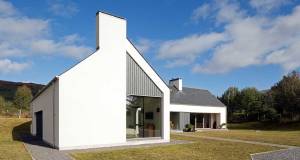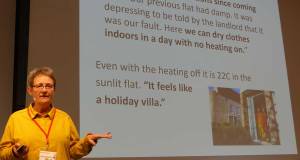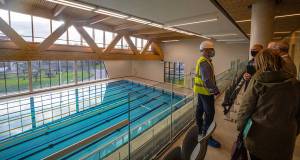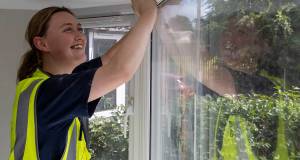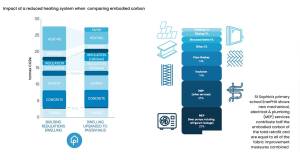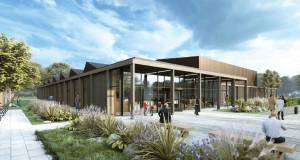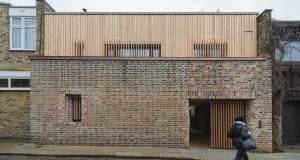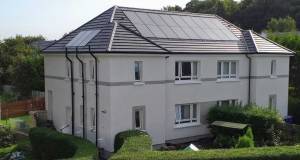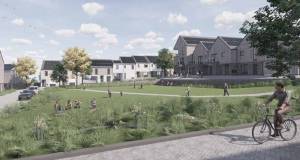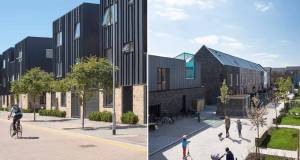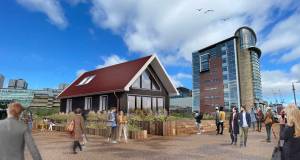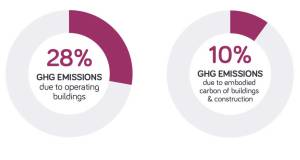UK news - passivehouseplus.ie
Scotland to mandate passive house for new homes
Must listen: Zero Ambitions Podcast
WorldGBC launches green building policy principles for governments
Passive house isn’t just about efficiency – it’s about social justice
The potential of the passive house standard to change the world isn’t restricted to tackling climate change – it’s about social justice too.
EU votes through EPBD recast
Thermal bypass paper published
Exeter's leading-edge leisure centre provided inspiration for UK Conference
AECB Conference focuses on practical decarbonisation
The first in-person event of the Association for Environment Conscious Building (AECB) since Covid, the 2022 AECB Conference, focussed on practical solutions to decarbonising buildings.
Ashden Awards winners showcase climate solutions
Organisations tackling the UK cost of living crisis and providing a new generation with the skills for green jobs have been recognised in this year’s international Ashden Awards.
AECB launches two levels of retrofit standards
The Association for Environment Conscious Building (AECB) has introduced a new retrofit standard catering for hard-to-treat homes and cases where homeowners want to take urgent action on climate change but are not currently able to commit to a deep retrofit.
Decarbonising buildings “most important issue” – Climate Change Committee
Decarbonising buildings is “probably the most important issue” in the UK’s efforts to reduce greenhouse gas emissions, according to the UK’s independent authority on climate change.
New passive house & embodied carbon resources
Do thicker insulated walls, triple glazed windows, & MVHR ventilation systems tip the scales unfavourably for passive house when it comes to embodied carbon?
EU proposes gas demand reduction plan till spring
As Russia weaponises gas exports, the European Commission has proposed a gas demand reduction plan, to cut use in Europe by 15 per cent until next spring.
World’s first passive house hospital completed in Frankfurt
The world’s first passive house hospital has been certified by the Passive House Institute – showing that the standard can be applied to even to the most demanding building types.
AECB conference to showcase timber innovation
The AECB conference 2022 will focus on practical solutions to decarbonising buildings, with a particular emphasis on timber-based approaches with the potential to deliver low energy, healthy buildings at scale while minimising the use of precious resources and impact on the environment.
Max Fordham House verified as UK’s first net zero carbon home
Renfrewshire aims for 3,500 whole-house deep retrofits
UK’s first passive leisure centre nears completion
‘Sufficiency’ key alongside energy efficiency & renewables, says IPCC
Latest climate report calls for more e� cient use of floor space in buildings
New EU law will mandate renovation of inefficient buildings
Green groups criticise lack of focus on embodied carbon.
The European Commission is proposing sweeping changes to the way in which energy ratings for buildings are allocated, in a bid to stimulate the retrofit of the worst performing buildings across Europe.
Rebuilt Low Energy Buildings Database to become key international resource
Disappointment at new building energy standards
TEDx passive house talk now available online
Passive House Plus editor and publisher Jeff Colley’s TEDx talk on the passive house standard is now available to view online.
Welsh social housing to embrace passive house, timber & life cycle assessment
The Welsh government has issued a new standard for social housing that requires an embodied carbon assessment, favours timber-based offsite construction, and bans fossil fuel boilers.
UK sustainable building groups become UN centres of excellence
At COP26, the United Nations Economic Commission for Europe (UNECE) recognised the UK’s Sustainable Development Foundation (SDF), along with South West College in Northern Ireland and the Construction Scotland Innovation Centre, as international centres of excellence for high performance buildings.
Poor ventilation a Covid risk in 40 per cent of classrooms, study finds
Coventry University research has found that 40 per cent of primary school classrooms examined in a study did not have an adequate ventilation rate to combat the spread of Covid-19.
COP26 house to showcase fabric first, low carbon build methods
Oil heating sector pivots to biofuels, but green groups raise concern
The UK and Ireland’s oil heating industry says it has taken a “major step forward” in the use of biofuels in domestic oil boilers, with early tests concluding that hydrotreated vegetable oil (HVO) works in virtually all existing oil boilers.
Architects call for urgent climate action ahead of COP 26
Ahead of the Built Environment Summit (28-29 October) and COP26 (1-12 November), the Royal Institute of British Architects (RIBA) and Architects Declare have published a report demonstrating the critical role the sector must play in reducing greenhouse gas emissions.


